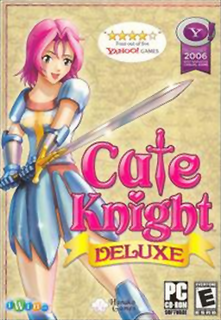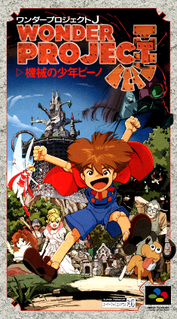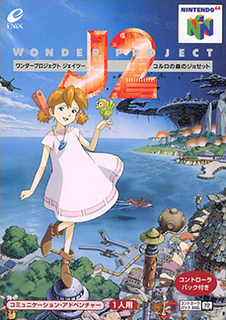 W
WAngelique is a Japanese media franchise based on the video game series. Currently, the series has only been released in Japan, with the exception of a Chinese PC version of the first game in the series. It is somewhat popular with overseas import gamers, who have started petitions in the hopes of English-translated releases of various games in the series. KOEI mentioned in an issue of Newtype USA that it is a possibility if enough demand is shown.
 W
WAngelique Luminarise, released on May 20, 2021, is the first Nintendo Switch entry in the Angelique series of otome games. A special box set version containing drama CDs, titled Angelique Luminarise Treasure Box, was released on the same day as the standard physical and download versions. It is the first new entry in the main Angelique series in 18 years. Publications, as well as KOEI Tecmo, have referred to the title as Anmina (アンミナ) for short. A trial version was published on the Nintendo e-shop on May 6, 2021.
 W
WAzur Lane is a side-scrolling shoot 'em up video game created by Chinese developers Shanghai Manjuu and Xiamen Yongshi, released in 2017 for the iOS and Android operating systems. Set in an alternate timeline of World War II, players engage in side-scrolling shooter gameplay, using female moe anthropomorphic characters based on warships from the war's major participants. Other gameplay elements, like customizing a dorm and in-game characters, are also present.
 W
WBusou Shinki is a Japanese media mix franchise from Konami Digital Entertainment, first launched in Japan in 2006 with a line of action figures followed by a companion online game. The franchise encompasses various manga, anime, novels, video games, and more.
 W
WCute Knight is a casual life simulation role-playing video game with many possible endings and careers featuring a single female character. Gameplay is similar to the Japanese Princess Maker with a more traditionally Western first-person perspective dungeons.
 W
WThe Idolmaster 2 is a Japanese raising simulation video game in The Idolmaster series developed and published by Bandai Namco Games. It was originally released on February 24, 2011 for the Xbox 360 in Japan, and later for the PlayStation 3 on October 27, 2011. The story in The Idolmaster 2 is told from the perspective of a producer in charge of leading and training a group of three pop idols to stardom and receive music awards. Its gameplay, while remaining similar to the previous title, features several improvements and differences, including changes in the roster of idol characters and the removal of online multiplayer elements.
 W
WThe Idolmaster Live For You! is a live simulation video game developed and published by Namco Bandai Games for the Xbox 360. It was released in Japan on February 28, 2008, as a sequel to The Idolmaster. The gameplay in Live For You! focuses on coordinating the concert event from The Idolmaster with higher customization of the songs, stage and costumes. The game features a rhythm minigame during performances, which was developed to add a sense of unity with the audience and add excitement. The player is also able to freely manipulate how the performance looks by adjusting the position of the camera towards the idols. The story is told from the perspective of a special producer in charge of coordinating the live performances of 11 pop idols from The Idolmaster series.
 W
WThe Idolmaster One For All is a Japanese raising simulation video game in The Idolmaster series developed and published by Bandai Namco Games. It was released in Japan on May 15, 2014 for the PlayStation 3. The story in One For All is told from the perspective of a producer in charge of leading and training a group of pop idols to stardom. Its gameplay, while most similar to its predecessor The Idolmaster 2, features several improvements and differences, and allows players to produce all 13 idols from 765 Production, the main talent agency featured in the series.
 W
WThe Idolmaster Platinum Stars is a Japanese simulation video game in The Idolmaster series developed and published by Bandai Namco Entertainment. It was released for the PlayStation 4 on July 28, 2016. A Traditional Chinese and Korean version of the game was released on September 28, 2016.
 W
WThe Idolmaster SP is a series of three Japanese raising simulation video games in The Idolmaster series developed and published by Namco Bandai Games. They were released on February 19, 2009, as Perfect Sun , Missing Moon , and Wandering Star for the PlayStation Portable as a port of The Idolmaster. The gameplay in SP features changes from its predecessor, including an additional promise system which puts more of a focus on communication. The games include three game modes: two single-player and one multiplayer mode for up to three players. The story is told from the perspective of a producer in charge of training 10 prospective pop idols on their way to stardom, and each version of SP features different idols.
 W
WThe Idolmaster is a Japanese raising simulation video game developed by Metro and published by Namco. It was released on July 26, 2005 as an arcade game and is the first game in The Idolmaster series. It was ported to the Xbox 360 on January 25, 2007 with many changes and improvements. The gameplay and story follows the career of a producer in charge of training prospective pop idols on their way to stardom. This includes arranging the idol's schedule, taking them to jobs, training them during lessons, and directing them through auditions. As gameplay continues, a relationship will develop between the idol and her producer fostered through talking with the idol and forming good memories.
 W
WKantai Collection , abbreviated as KanColle , is a Japanese free-to-play web browser game developed by Kadokawa Games and published by DMM.com.
 W
WMissBimbo.com is an online fashion game and social networking site. Players style their 'Bimbo' character and level her up by accumulating a variety of attribute points. Points can be earned by playing mini games, participating in competitions, spending time at specific city locations, or points can be bought with in-game currency. The website also features a diverse forum and the opportunity for players to design their own clothes to be sold in the digital shop. Many of the gameplay mechanics and names of attribute points changed when Miss Bimbo was relaunched as Bimboland.
 W
WNeon Genesis Evangelion: Ayanami Raising Project is a simulation game created by Gainax and BROCCOLI, and based on the anime and manga series Neon Genesis Evangelion. The gameplay is similar to that of the Princess Maker series also developed by Gainax. It was released for Microsoft Windows PCs in 2001, and the Dreamcast the following year.
 W
WNeon Genesis Evangelion: Shinji Ikari Raising Project is a life simulation computer game based on the anime series, Neon Genesis Evangelion. The player assumes control of both Shinji Ikari and Misato Katsuragi, the protagonists of the aforementioned anime series, to "raise" Shinji. This is done through making him complete a number of different tasks. Shinji Ikari Raising Project is the second and final entry in the Raising Project series of Evangelion games, proceeded by Neon Genesis Evangelion: Ayanami Raising Project in 2001. Both games bare a strong similarity to publisher Gainax's Princess Maker series. The game was released officially in Japanese and Korean, and has received fan translations into English and Russian. The game was written by Nobuaki Takerube, and its artwork was drawn by Kengo Yonekura and Dream Japan Co., Ltd.
 W
WPet Club: Inu Daisuki! is a video game where a player controls a young female person who has to take care of a pet dog.
 W
WPet Club: Neko Daisuki! is a video game released in Japan for the Game Gear. It is similar to Pet Club: Inu Daisuki! except it deals with taking care of a newborn kitten instead of a puppy. The game is part of Kid's Gear collection of titles for a younger audience.
 W
WThe Princess Guide is an action role-playing video game and raising sim developed and published by Nippon Ichi Software. It was released on March 8, 2018 in Japan, March 26, 2019 in North America, and March 29, 2019 in Europe for PlayStation 4 and Nintendo Switch. Taking the role of a veteran soldier, the player must choose one of four princesses to tutor in combat and fight against the adversary besieging their kingdom. The game received mixed reviews from critics, who praised it as having potential but criticized it as too shallow and with too low a budget.
 W
WPrincess Maker (プリンセスメーカー) is a series of social simulation bishōjo games by the video game and anime production company Gainax. The first Princess Maker, while popular enough to be translated into Chinese, was never released in the United States. Princess Maker 2 was translated by SoftEgg for a North American release, but this release was cancelled because publisher Intracorp went bankrupt. Princess Maker 3, Princess Maker 4, and Princess Maker 5 have subsequently been released, as did several spin-off games. The series has been translated and released in Korea (Fujitsu) and Taiwan (Kingformation). An English release of Princess Maker 2 was attempted in mid-90s, but it resulted in failure, and no games in this series were released in English until Princess Maker 2 Refine in 2016. Petite Princess Yucie, an anime series loosely based on the third game but with characters from all previous games, ran for 26 episodes in 2002–2003.
 W
WPrincess Maker 2 is a 1993 Japanese video game developed by the company Gainax. It is the second installment in the Princess Maker series of social simulation games where the player must act as a parental figure and raise a young girl. The player takes role of a war hero who raises a girl to the age of 18. At the end of the game, the daughter goes into a line of work; what this work is, how much talent she has for it, her marital life, and her overall happiness all depend on the player's actions throughout the game.
 W
WPrincess Maker 5 is the fifth game from the main Princess Maker series originally released for Microsoft Windows in 2007. A PlayStation 2 versions of the game followed in 2008. That version includes various Gainax references, such as the use of Neon Genesis Evangelion and Gurren Lagann costumes. A PlayStation Portable version was also released in 2008.
 W
WShiroi Ringu he, full title Joshi Puroresu Story: Shiroi Ringu he: Twinkle Little Star , is a professional wrestling video game for the Super Famicom that was released on December 27, 1995. Popular female Japanese professional wrestlers like Shinobu Kandori and Noriyo Tateno appear in this game.
 W
WWonder Project J is a 1994 life simulation video game developed by Almanic Corporation and published by Enix for the Super Famicom. In the game, players take care of a boy Gijin (robot) created by Dr. Geppetto named Pino. Directed by Takashi Yoneda, the title was created by most of the same personnel that worked on previous projects at Almanic such as E.V.O.: Search for Eden. It was met with positive reception from critics and sold over 1.3 million copies in Japan, making it one of the best-selling Super Famicom games. A sequel, Wonder Project J2, was released in 1996 for the Nintendo 64.
 W
WWonder Project J2 is a 1996 life simulation video game developed by Givro Corporation and originally published by Enix for the Nintendo 64. It is the sequel to Wonder Project J, which was released earlier in 1994 for the Super Famicom.